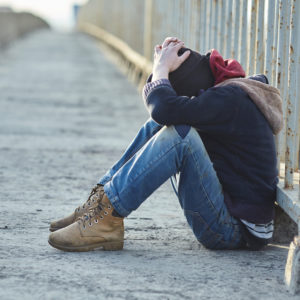Millions of children in the United States experience some form of homelessness each year. They have the same basic needs as all children: a stable place to live, high-quality education and committed adults in their lives. But many homeless children need something more.
They need a lawyer.
Because of their unique situations, homeless children face daunting circumstances that frequently give rise to legal problems. Some are on their own due to the death, incarceration or drug dependency of a parent; others age out of foster care, run away or leave a juvenile justice facility and have nowhere to go. A disproportionate number are LGBT, minorities or high school dropouts.
Lawyers can help these children get back on their feet, navigating complicated legal issues that children cannot handle on their own. Legal experts can traverse byzantine bureaucracies to help these children obtain essential documents they are missing, such as birth certificates so they can gain access to basic services like health and education.
Beyond these basic requirements, some children also need legal assistance for more complicated issues confronting them, such as a lawyer to fight for them in court when they have fled a violent home or legal expertise in getting governmental and other benefits they are owed.
Out on the streets, homeless children frequently run afoul of the law for life-sustaining activities like eating or sleeping — a common problem for homeless people in this country. They need lawyers to work to expunge these records, so they face fewer obstacles in getting into college or finding a job.
In both the short term and long term, legal services can literally make the difference between a child who is living on the street and a child who achieves security, safety and a path forward.
To help these children create better lives, the American Bar Association has formed the Homeless Youth Legal Network. The network gives children and young adults experiencing homelessness increased access to legal services and matches lawyers’ skills and interests with the needs of the youth they assist. It also provides lawyers with training and technical assistance in the unique needs of homeless young people.
The network has chosen 12 Model Programs that showcase promising practices across the country. They range from the Homeless Youth Legal Clinic in Salt Lake City to the Center for Children’s Advocacy in Hartford, Conn., to Pegasus Legal Services for Children in Albuquerque, N.M. In addition to the high quality legal services they provide, these programs represent the wide range of approaches to serving homeless youth that exist across the country.
But securing the legal rights of homeless youth is not just a problem in the United States. The American Bar Association believes that the magnitude of youth homelessness is a global civil rights issue.
In the Democratic Republic of the Congo, tens of thousands of children subsist on the streets, enduring harassment and deprivation. In Mexico, homeless children sleep in sewers. More than 20,000 homeless children live Thailand’s major urban areas.
Such children, like those in the United States, need legal representatives to help them get official documents and identity cards. These legal rights are detailed in the U.N. General Comment on Children in Street Situations — a wide-ranging document that lays out obligations to street-connected youth under the United Nations’ Convention on the Rights of the Child, adopted in 1989.
To address these legal needs, the ABA convened the International Summit on the Legal Rights of Street-Connected Children and Youth in Sao Paulo, Brazil, in late November with more than 100 international academics, advocates, funders, lawyers and government officials from 20 countries.
Participants drafted principles to assist in the implementation and provision of the legal issues detailed in the U.N. General Comment on Children in Street Situations, including advancing safe harbor protections for child victims of trafficking and labor abuse and decriminalizing child and youth homelessness.
The expertise of lawyers, here and across the world, can make a huge difference for these children. And the ABA is working hard to deliver this assistance so they have the potential for full and productive lives.

